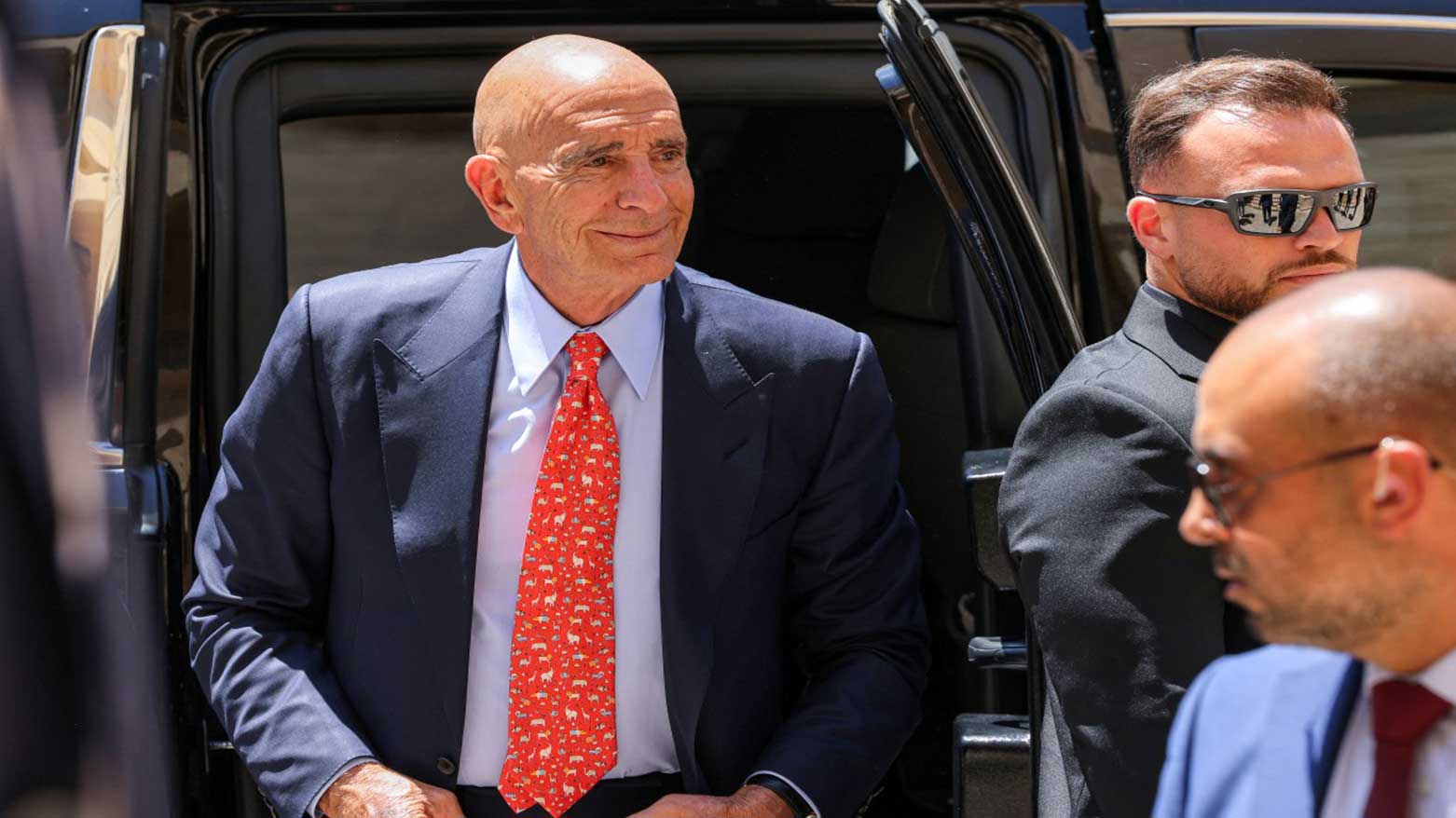Hezbollah Joining Iran-Israel War Would Be ‘Very Bad Decision,’ U.S. Envoy Says
President Joseph Aoun, following his meeting with Barrack, emphasized Lebanon’s commitment to maintaining national stability and reducing the presence of armed groups.

ERBIL (Kurdistan24) — The United States special envoy for Syria, Tom Barrack, on Thursday issued a stark warning to Lebanon’s Hezbollah group against entering the ongoing conflict between Israel and Iran, stating such a move would be a “very, very, very bad decision,” according to AFP.
Barrack, who also serves as the U.S. ambassador to Turkey, made the remarks during his first official visit to Beirut, where he met with several high-ranking Lebanese officials, including Parliament Speaker Nabih Berri, a key political ally of Hezbollah.
The warning comes as fears grow over the possible regional spillover of the war, which erupted last Friday with Israeli strikes on Iranian targets, followed by Iranian missile attacks on Israeli cities. While Hezbollah has vocally condemned Israel’s actions, it has so far refrained from formally joining the conflict.
“I can say on behalf of President (Donald) Trump... that would be a very, very, very bad decision,” Barrack told reporters following his meeting with Berri, in response to a question about potential Hezbollah involvement.
Hezbollah suffered heavy losses during last year’s war with Israel, which ended with a fragile ceasefire in November. The conflict significantly weakened the group’s military capabilities and standing within the so-called Iran-led “axis of resistance.” Under the terms of the ceasefire, Hezbollah is required to withdraw its fighters north of the Litani River, about 30 kilometers (20 miles) from the Israeli border, leaving only Lebanese army forces and United Nations peacekeepers in the southern region.
Despite the truce, Israel has continued to carry out airstrikes in southern Lebanon, claiming it is targeting Hezbollah positions. On Wednesday, an Israeli strike on Kfar Juz killed two people, while another air raid in Barish wounded one civilian, according to Lebanon’s health ministry. Israel claimed responsibility for the attacks, stating that it had killed two Hezbollah members.
Lebanese authorities have reiterated their efforts to prevent the country from being drawn into a broader war. The foreign ministry said last week that Beirut was “continuing its contacts” to avoid regional entanglement.
President Joseph Aoun, following his meeting with Barrack, emphasized Lebanon’s commitment to maintaining national stability and reducing the presence of armed groups. “Communications are ongoing to achieve the goal of weapons monopoly at both the Lebanese and Palestinian levels, and will intensify after stability returns... to the region,” Aoun said in a statement released by the Lebanese presidency.
Lebanon has also taken steps in recent months to disarm Palestinian armed factions operating within refugee camps, where they have held significant influence for decades.
Barrack reassured Lebanese leaders of continued U.S. support, saying Washington remains committed to preventing further chaos in the region. “We are committed to help... so what we have altogether is hope, and that chaos will subside soon, and that out of that will come the blossoming of peace and prosperity,” he said.
